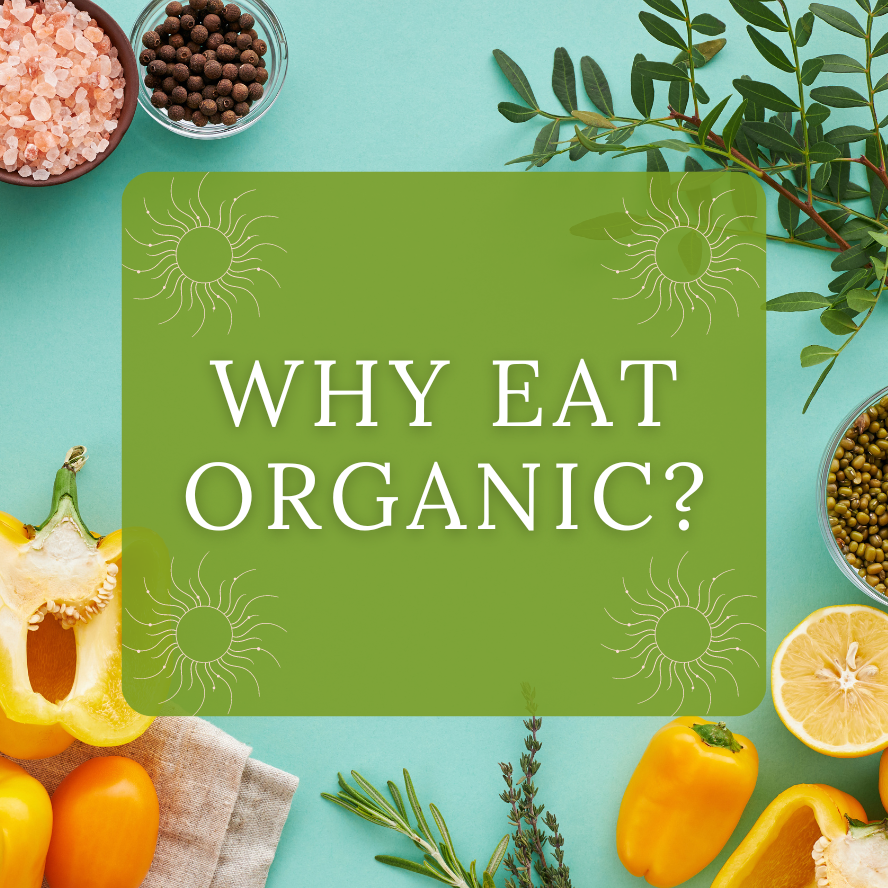
Switching to organic food is often one of the first steps to improving your health when working in the parameters of diet and lifestyle. In general, this pivotal choice will limit your chemical exposure, making it much easier to detoxify your system, but there are many more benefits to eating organic.
What does it mean when a food is organic?
Certified Organic food is produced without the use of:
- Genetically modified organisms (When you see the Organic seal, it is Non-GMO also)
- Harmful synthetic or petroleum based pesticides
- Sewage sludge (Yes, this means human waste and yes, it is normally allowed)
- Ionic radiation
- Bioengineering practices
Dairy, eggs, poultry and other meat that is organic certified is also produced without the use of antibiotics or growth hormones.
Ideally, none of these things would be allowed in our food supply, as they have been proven to cause a myriad of dysfunction in the human body...but this is where the food system is at currently. This is also why it is helpful to support organic choices...to vote with our dollars and demand higher standards!
What are the benefits of eating organic?
Studies have shown that organic produce, meat and milk can be:
- Richer in nutrients.
- Packed with more vitamins and minerals.
- Higher in cancer-fighting antioxidants.
So not only are you getting less of a burden on your system by limiting toxic exposures, but you are getting more nourishing food to support your body!
But wait...there's more!
Organic (and regenerative) farming practices have also proved to be less of a burden on mother earth! Yes, choosing organic will improve not only the microcosm of your own gut flora...but also the macrocosm of our planet! How amazing is that?
Organic and regenerative farming practices cause less pollution, conserve water, reduce soil erosion, use less energy while increasing the soil health and fertility. Traditional farming practices cause soil depletion, toxic water runoff (letting harmful pesticides and chemicals into our water supply) and erosion.
Its important to remember with chemicals allowed in commercial farming (and in our food supply) that dosage is impossible to regulate since we consume a variety of these foods in any given span of time. Compound exposure is the problem here.
Dr. Charles Benbrook, Executive Director of the Heartland Health Research Alliance, was the lead scientist on a study coordinated with the Pesticide Research Institute, and the Crop and Soil Science Department of Oregon State University. The 36-page report was published in the peer-reviewed journal Agronomy on June 22nd, 2021. In this study, they concluded that by converting only 1.2% of U.S. cropland growing fruits and vegetables to organic practices, the nation's farmers could dramatically reduce pesticide dietary exposure and risk by at least 90%
For more information on the reality of our toxic exposure and what we can do, see the Moms Across America website.
Other resources:
